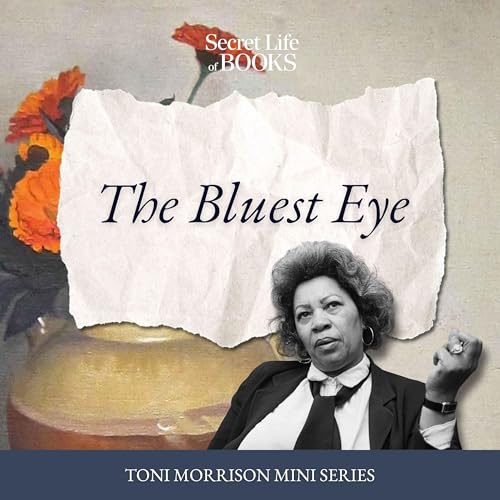
Secret Life of Books
Failed to add items
Sorry, we are unable to add the item because your shopping cart is already at capacity.
Add to basket failed.
Please try again later
Add to Wish List failed.
Please try again later
Remove from Wish List failed.
Please try again later
Follow podcast failed
Unfollow podcast failed
-
Narrated by:
About this listen
The Secret Life of Books is a fascinating, addictive, often shocking, occasionally hilarious weekly podcast starring Sophie Gee, an English professor at Princeton University, and Jonty Claypole, formerly director of arts at the BBC.
Every week these virtuoso critics and close friends take an iconic book and reveal the hidden story behind the story: who made it, their clandestine motives, the undeclared stakes, the scandalous backstory and above all the secret, mysterious meanings of books we thought we knew.
-- To join the Secret Life of Books Club visit: www.secretlifeofbooks.org
-- Please support us on Patreon to keep the lights on in the SLoB studio: https://patreon.com/SecretLifeofBooks528?utm_medium=unknown&utm_source=join_link&utm_campaign=creatorshare_creator&utm_content=copyLink
insta: https://www.instagram.com/secretlifeofbookspodcast/
youtube: https://www.youtube.com/@secretlifeofbookspodcast/shorts
Hosted on Acast. See acast.com/privacy for more information.
© 2025 Secret Life of Books
Episodes
-
 32 mins
32 minsFailed to add items
Sorry, we are unable to add the item because your shopping cart is already at capacity.Add to basket failed.
Please try again laterAdd to Wish List failed.
Please try again laterRemove from Wish List failed.
Please try again laterFollow podcast failed
Unfollow podcast failed
-
 Feb 3 20261 hr and 10 mins
Feb 3 20261 hr and 10 minsFailed to add items
Sorry, we are unable to add the item because your shopping cart is already at capacity.Add to basket failed.
Please try again laterAdd to Wish List failed.
Please try again laterRemove from Wish List failed.
Please try again laterFollow podcast failed
Unfollow podcast failed
-
 1 hr and 6 mins
1 hr and 6 minsFailed to add items
Sorry, we are unable to add the item because your shopping cart is already at capacity.Add to basket failed.
Please try again laterAdd to Wish List failed.
Please try again laterRemove from Wish List failed.
Please try again laterFollow podcast failed
Unfollow podcast failed
No reviews yet
In the spirit of reconciliation, Audible acknowledges the Traditional Custodians of country throughout Australia and their connections to land, sea and community. We pay our respect to their elders past and present and extend that respect to all Aboriginal and Torres Strait Islander peoples today.


